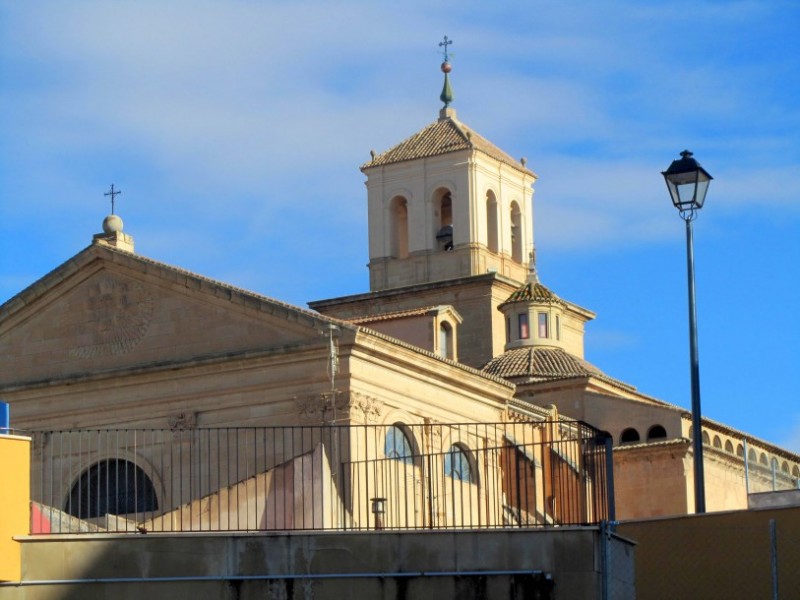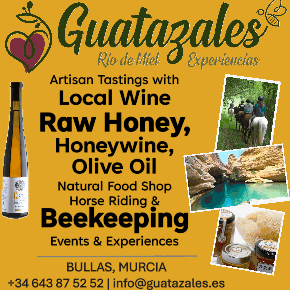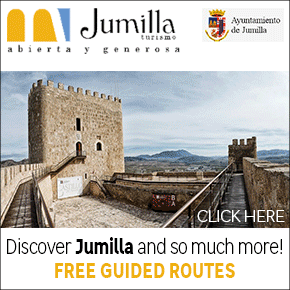
To be listed on the CAMPOSOL TODAY MAP please call +34 968 018 268.

Guidelines for submitting articles to Condado Today
Hello, and thank you for choosing CondadoToday.com to publicise your organisation’s info or event.
Condado Today is a website set up by Murcia Today specifically for residents of the urbanisation in Southwest Murcia, providing news and information on what’s happening in the local area, which is the largest English-speaking expat area in the Region of Murcia.
When submitting text to be included on Condado Today, please abide by the following guidelines so we can upload your article as swiftly as possible:
Send an email to editor@condadotoday.com or contact@murciatoday.com
Attach the information in a Word Document or Google Doc
Include all relevant points, including:
Who is the organisation running the event?
Where is it happening?
When?
How much does it cost?
Is it necessary to book beforehand, or can people just show up on the day?
…but try not to exceed 300 words
Also attach a photo to illustrate your article, no more than 100kb

Iglesia Mayor de Santiago in Jumilla
This majestic church in Jumilla was built between the 15th and 19th centuries
The large church dedicated to the Apostle Santiago in Jumilla is probably the most iconic building in the town itself (although it is overshadowed by the castle that stands above), and although construction began as early as the 15th century the truth is that it could still be viewed as “work in progress” until well into the 19th.
As a result it contains a compendium of different architectural styles: the main nave and side chapels, which are reported to have been started either in 1447 or in 1454, are representative of the late Gothic trends of the 15th century, while in the main chapel the work of architect Jerónimo Quijano shows many of the influences of the Renaissance. The dome which stands over this area was the first of its kind in the Region of Murcia, and also from the 16th century is the altar screen (by the Ayala brothers, 1583), which depicts the pilgrimage of Santiago from the Holy Land to Spain.
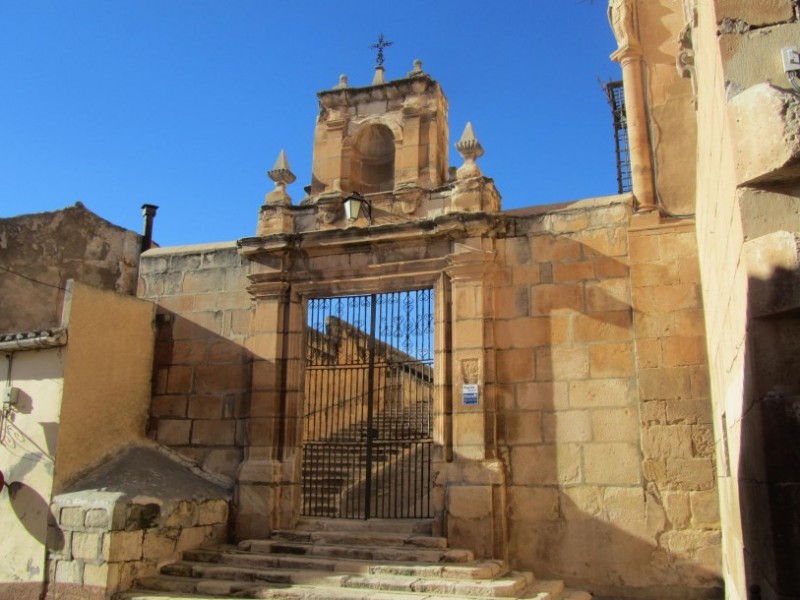
The 16th century also saw the addition of the old Sacristy underneath the tower, and the main entrance (Julián de Alamíquez, 1573) on the southern side of the building, which is in the form of a triumphal arch similar to that of the Colegiata in Lorca. It is flanked by niches decorated with shell designs, and two niches at the top of the arch contain busts of Saint Peter and Saint Paul.
In the early 18th century work began again on the orders of Cardinal Belluga, with the addition of the first two levels of the tower which can still be seen today, as well as the Communion Chapel and the new Sacristy, which was the work of Pedro Pagán and José de los Corrales. The 19th century then gave rise to the choir, which is separated from the rest of the church by a superb piece of wrought ironwork, and in which the remains of an early-19th-century organ can still be seen despite it having been damaged during the Civil War.
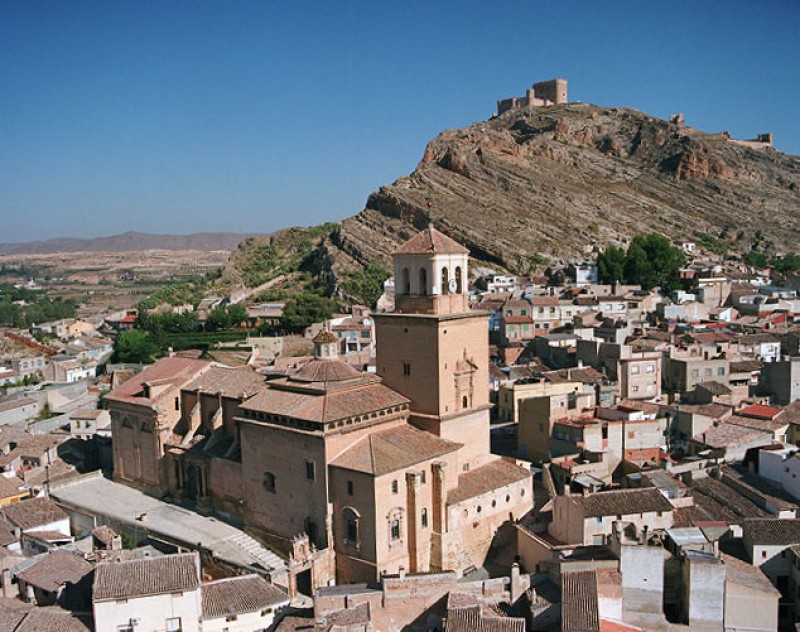
The church of Santiago stands in the old town centre beneath the hill on which the castle stands, where the population moved down onto the plain in the 15th century when it became clear that the threat of Moorish invasions had been eliminated.
Among the religious works of art housed in the church are the altar screen by the Ayala brothers, three works by Ignacio Pinazo (the Virgen del Carmen, Santa María Magdalena and the Virgen de la Soledad), Santos de la Hera’s Cristo Crucificado de la Expiación and various items of sculpture related to the life of Christ which are featured in the annual Easter processions.
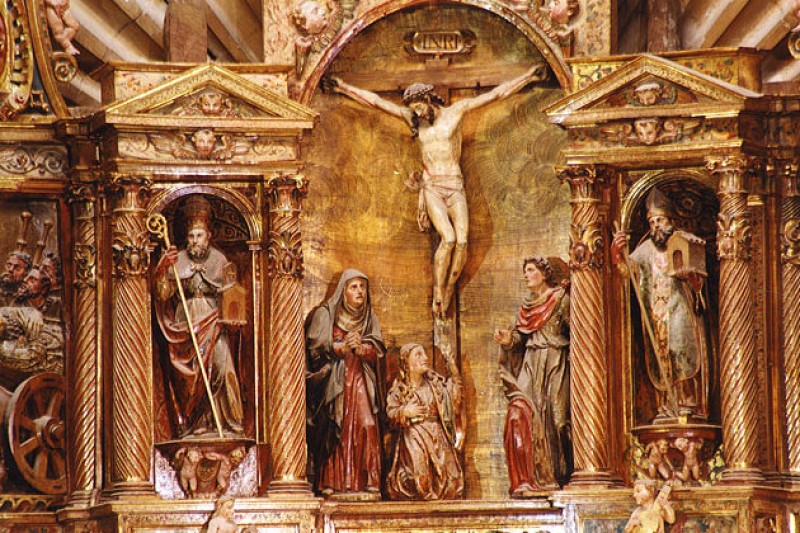
It is also interesting to note that in the past the Cristo de la Agonía by Francisco Salzillo presided over the Sacristy, but this figure is now housed in the Convento del Santísimo Rosario. However, another figure of Christ on the Cross is still in the Iglesia Mayor de Santiago, as are the “Traslado al Sepulcro” by Manuel Romero Ortega and the Cristo de la Misericordia by José Hernández Ramos. Both of these latter figures date from the 20th century.
For more information about visiting Jumilla, including what's on, local news and all of the bodegas on the Jumilla wine route, visit the home page of Jumilla Today.




